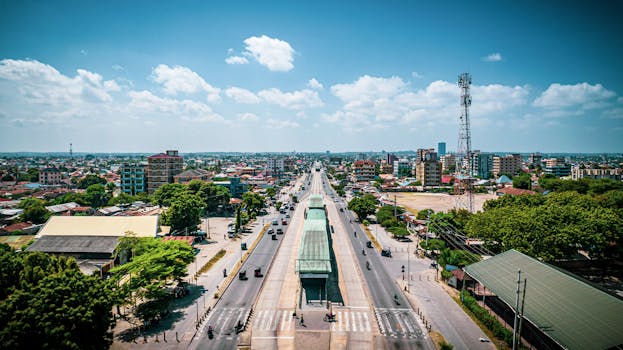The Future of Telecommunications: Spotlight on Africa’s Fiber Companies
The future of telecommunications in Africa is looking bright, with fiber companies playing a crucial role in shaping the continent’s digital landscape. In this article, we will explore the current state of telecommunications in Africa, the growth of fiber companies, and the impact of these developments on the continent’s economy and society.

The Future of Telecommunications: Spotlight on Africa’s Fiber Companies
The Future of Telecommunications
The Future of Telecommunications in Africa is a subject of great interest and importance, as the continent is experiencing rapid growth and development in the telecommunications sector. The growth of fiber companies in Africa is a key factor in this development, as they are providing the necessary infrastructure to support the increasing demand for high-speed internet and other telecommunications services.
With the increasing use of mobile devices and the growing demand for high-speed internet, the telecommunications sector in Africa is expected to continue growing in the coming years. According to a report by ResearchAndMarkets.com, the African telecommunications market is expected to grow from $65.8 billion in 2020 to $104.6 billion by 2025, at a Compound Annual Growth Rate (CAGR) of 9.6%.
This growth is being driven by a number of factors, including the increasing use of mobile devices, the growing demand for high-speed internet, and the expansion of fiber optic networks across the continent.
Africa’s Fiber Companies
Africa’s fiber companies are playing a crucial role in shaping the continent’s digital landscape. These companies are providing the necessary infrastructure to support the increasing demand for high-speed internet and other telecommunications services.
Some of the key players in the African fiber market include Liquid Telecom, MTN, and Vodacom. These companies are investing heavily in the expansion of fiber optic networks across the continent, and are providing a range of services including high-speed internet, data storage, and cloud computing.
Liquid Telecom, for example, has built a fiber optic network that spans over 70,000 kilometers across 13 countries in Eastern, Central, and Southern Africa. This network provides high-speed internet and other telecommunications services to businesses, governments, and individuals across the region.
MTN, another major player in the African telecommunications market, has also invested heavily in the expansion of fiber optic networks across the continent. The company has built a fiber optic network that spans over 40,000 kilometers across 21 countries in Africa, and provides a range of services including high-speed internet, data storage, and cloud computing.
Impact on the Economy and Society
The growth of fiber companies in Africa is having a significant impact on the continent’s economy and society. The expansion of fiber optic networks is providing businesses, governments, and individuals with access to high-speed internet and other telecommunications services, which is driving economic growth and development.
According to a report by the International Telecommunication Union (ITU), the expansion of fiber optic networks in Africa could increase the continent’s GDP by up to 10% by 2025. This is because high-speed internet and other telecommunications services are essential for businesses, governments, and individuals to participate in the digital economy.
The growth of fiber companies in Africa is also having a significant impact on society. The expansion of fiber optic networks is providing people with access to a range of online services, including education, healthcare, and financial services. This is improving the quality of life for people across the continent, and is helping to bridge the digital divide between Africa and other regions of the world.
Conclusion
In conclusion, the future of telecommunications in Africa is looking bright, with fiber companies playing a crucial role in shaping the continent’s digital landscape. The growth of fiber companies in Africa is driving economic growth and development, and is having a significant impact on society.
As the demand for high-speed internet and other telecommunications services continues to grow, it is likely that the African telecommunications market will continue to expand in the coming years. This will provide opportunities for businesses, governments, and individuals to participate in the digital economy, and will help to drive economic growth and development across the continent.



